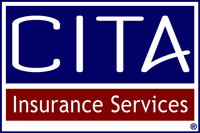-
5 Tips to Prevent Errors and Omissions in your Property and Casualty Insurance Agency
5 Tips to Prevent Errors and Omissions in your Property and Casualty Insurance Agency
12.03.2018Your property and casualty insurance agency relies upon its fine reputation. Unfortunately, when the errors and omissions in your professional practice begin to stack up, this reputation begins to erode.
Read on for five tips on how to prevent these errors and omissions, and build a reputation for your agency which will stand the test of time.
Focus on Clear and Precise Communication
One of the primary factors that leads to errors and omissions when dealing with property and casualty insurance is a breakdown in communications between yourself and the client. This need not be a total breakdown in the relationship; even just a failure to share a small but pertinent bit of information can result in a dangerous omission.
If your agency fails to report a claim in time, does not explain the provisions of a certain policy to the client, or is unsuccessful in achieving suitable coverage, the client is well within their rights to complain. Maintain clear communication and avoid this pitfall.
Build Robust Protocols
A skilled insurance agent will be able to think on his or her feet and will be able to apply their skill and experience on a case by case basis. However, this does not mean that they should be hung out to dry in the event of a mistake.
Robust protocols give a sturdy framework that your agents can fall back on if required. This structure represents a safety net, taking the pressure off your team and making it far easier for them to perform at their best.
Stay on top of Developments in the Market
A common complaint about errors and omissions is that the agent has failed to offer the right coverage type. Often this is simply because of a recent change in the rules, regulations or offerings that the agent was unaware of.
The only way to combat this is to foster a culture of diligence and responsibility when it comes to examining changes in the industry. Only agents and agencies who form these kinds of habits will be able to protect themselves against this error, so aim to introduce this on a systematic level across the board.
This requires significant hard work and discipline, but the potential rewards make it worth it in the long run.
Maintain Your Records and Embrace Digital
The modern property and casualty insurance agency has a wealth of different tools and digital platforms at their disposal when it comes to record keeping. As the industry has evolved way beyond the confines of manual querying via stacks of paper and ink documents, there is no reason why an insurance agency cannot develop a solid system of recording and monitoring.
Assess your current record keeping system; is it up to scratch? If not, why not? Once you understand what is going wrong with your current system, you can take steps to put it right. Do not fall into the trap of letting your records grow cumbersome, unwieldy and untidy; such a system is a relative breeding ground for errors and omissions. Instead, embrace the digital revolution and keep on top of your records.
Appraise and Reappraise
For an insurance agent, regular appraisals are part and parcel of an effective process of development, and should not be shied away from. The fact of the matter is simple; a client comes to you and your agency because they need to be connected with the right insurance coverage. It is only through the skill and expertise of your agents that this can be achieved.
So, appraise this skill and analyze this expertise. Coach your team, nurture them, help them to grow and develop along the career path. This will not only help them to make the right calls in the short term, but will also set them on the right track towards a bright professional future.
All information provided in this blog is for informational purposes only. The sources used are presumed accurate. CITA Insurance Services, Brown & Brown Program Insurance Services, Inc. and Brown & Brown, Inc. will not be liable for any errors, omissions, losses, injuries or damages arising from its display or use and will not assume responsibility for any misguided information. No guarantees are implied.
